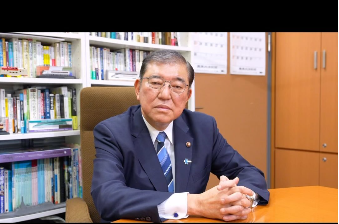
(Photo : Shigeru Ishiba (Iinstagram.com))
- Japan's cabinet has approved a $140 billion stimulus package to support households and businesses.
- The package includes subsidies for gas and electricity bills, and investments into the semiconductor and AI sector.
- Prime Minister Ishiba emphasized the importance of wage growth across all generations.
- The approval of this stimulus package is a significant step in Ishiba's efforts to support struggling households and businesses, and to secure his leadership of a minority government.
In a recent development, the cabinet of Japanese Prime Minister Shigeru Ishiba has given its approval to a stimulus package that is marginally larger than the one from the previous year. This move comes as a part of Ishiba's commitment to bolster support for households and businesses grappling with escalating costs.
The newly approved stimulus package outlines fiscal spending of 21.9 trillion yen, equivalent to $140 billion. This funding is earmarked for initiatives aimed at promoting sustained wage growth and providing cash handouts to low-income households.
Stimulus Package: A Closer Look
Additionally, the package includes subsidies for gas and electricity bills, and investments into the semiconductor and AI sector. This information was released by the Cabinet Office on Friday. Prime Minister Ishiba, addressing reporters earlier in the day, emphasized the importance of wage growth across all generations.
The most important thing is to raise wages for all generations, he said. This needs to happen now and in the future. His words underscore the urgency of the situation and the government's commitment to addressing it.
The approval of a larger spending package than the previous year was a crucial task for Ishiba, as he seeks to consolidate his leadership of a minority government. This move is seen as a significant step towards achieving that goal. Earlier this week, Ishiba successfully negotiated a deal with the Democratic Party for the People, securing enough support for his stimulus plan.
Historical Context and Future Implications
This agreement serves as a blueprint for Ishiba to maintain his Liberal Democratic party-led minority government in the face of upcoming challenges, including the annual budget for the next fiscal year. This is not the first time a government has used a stimulus package to support its economy. During the 2008 global financial crisis, many countries, including the United States and China, implemented similar measures.
In the case of Japan, the current stimulus package is particularly significant given the country's ongoing struggle with deflation and stagnant wage growth. The government's focus on wage growth and support for low-income households is a clear indication of its commitment to addressing these issues.
The inclusion of subsidies for gas and electricity bills in the package is a direct response to the rising energy costs that have been a major concern for households and businesses alike.









